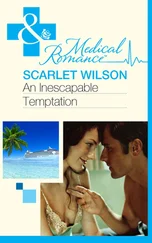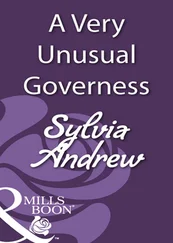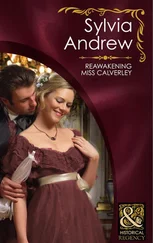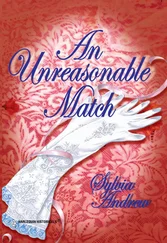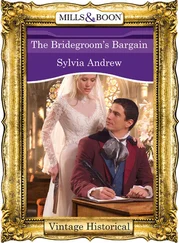When Hugo wasn’t being the kindest man she knew, thought Deborah in exasperation, he was far too lordly! It was obvious to her that he had now decided that one of his cousins would make a suitable wife and assumed that all he had to do was to decide which one. Such arrogance! It would serve him right if neither would accept him—but she couldn’t imagine that would happen. She suddenly felt weary beyond measure.
‘Good night, Hugo,’ she said and turned to go. Then, to her astonishment, Hugo put his hands on her shoulders and pulled her nearer. He kissed her on the cheek.
‘Don’t lose heart,’ he said. ‘Things will be better for you now. We are here to look after you.’
‘Thank you.’ Deborah could not have said anything more. Hugo’s nearness was playing havoc with her emotions. Delight, despair, an almost irresistible impulse to reach up and bring his head round so that his lips could meet hers… She stiffened and withdrew. Such wanton behaviour would shock him to the core. What was worse, he would be embarrassed and uncomfortable, too. She knew how he thought of her, and it was not as a man thinks of a possible wife. ‘Deborah would never be in the slightest danger from me!’ he had said to Aunt Elizabeth, laughing at the very idea. It had hurt, but it had not surprised her.
‘Good night, and thank you once again.’ She turned and went into the house.
Hugo slowly walked back to the Hall. He was puzzled. The impulse to kiss Deborah Staunton had taken him by surprise, but he supposed it had been a natural one. She had looked so forlorn, and he had frequently comforted her in the past. But what astonished him was that once she was in his arms the simple desire to comfort had changed into something much more dangerous. The feel of her fragile bones beneath his hands, the look of helplessness in those dark, indigo eyes, had been unexpectedly seductive. He had been within a hair’s breadth of kissing her in real earnest. Kissing little, penniless, hopelessly disorganised Deborah Staunton! And then she had, quite understandably, stiffened and pulled away and the moment had passed… He shook his head. Midsummer madness! It would not be repeated.
He firmly dismissed the incident and turned to contemplating his own future. Now that he was based more or less permanently in Northamptonshire, was he going to find the life of a country gentleman intolerably dull? For the last ten years he had lived in the fashionable world, and though he had never outrun his budget he had managed to enjoy most of the delights London had to offer. He was aware that he was known in society as a man of taste and judgement. He had always been a keen sportsman, and through practice and, yes, luck, he had achieved success in most of the activities admired by his London acquaintances. They had been good years…
But he had promised his parents he would settle down when he reached thirty, and that time had now come. He had returned to Abbot Quincey with the fixed intention of marrying, and it seemed to him that either of his twin cousins would make a very suitable wife. The Percevals were a good sound stock—there could be no objection to marriage between cousins. The problem would be which one to choose! He was fond of them both, and they both seemed to like him. Yes, he could do a lot worse. Life with either one of them would be very pleasant…
Might it be dull, perhaps? Possibly, but he would be kept fully occupied with the responsibilities to his family and to the estate he would one day inherit. He and Frederica—or Edwina—would have a sound relationship based on friendship, love for their children and their separate duties. That would be enough. Quite enough. Indeed, excessive feeling of any kind was in rather poor taste—he had usually managed to avoid it. Yes—marriage to someone like Edwina—or Frederica—would suit him very well. Either of them would make an excellent future Lady Perceval. Unlike poor Deborah Staunton… She would lead a man a pretty dance indeed! He would never know what she might do next!
Deborah had the promised talk with her aunt the next morning, and was so shocked by what she heard that she collected Autolycus and set out to find solitude and peace in the woods surrounding the Hall. She walked along the familiar paths, lost in her own thoughts, until she was roused by excited barks and yelps from the dog. Hugo was walking towards her, Autolycus leaping up at his adopted new master.
‘That damned dog! Down, sir! Why the devil don’t you keep him on the leash until he knows how to behave?’ Hugo said testily. ‘Ill-disciplined dogs are a menace to all! I said down!’ Autolycus flattened himself in his usual posture of abject apology whenever Hugo addressed him thus, and lay quiet. ‘I’ve been looking for you. Edwina told me you had come this way.’ He took a look at her dazed expression. ‘You’ve been crying! What’s wrong?’
Deborah threw up her head and said angrily, ‘I haven’t been crying! I never cry. If my eyes are red it’s because…it’s because I had a fly in one of them.’
‘Let me see.’
‘It’s gone now.’
‘Deborah, tell me why you are upset.’
‘I’m not upset, I tell you! I’m very pleased!’ Deborah took a breath and said more calmly, ‘I’ve just learned that I’m not poor! Not at all! I have an income of a hundred pounds a year!’
‘My poor girl, that won’t go far!’
‘It’s riches, Hugo! I thought I had nothing.’
Hugo fell into step beside her and they walked along the shady path together. ‘Tell me,’ he said. ‘Where has this wealth come from?’
‘Grandmother Inglesham.’
‘The Duchess? I thought that the Ingleshams had cut you all off?’
‘They had. But when she died my grandmother left some money with Aunt Elizabeth to provide an allowance for my mother. One hundred pounds a year. But not before my father was dead. The Duchess of Inglesham was determined not to let Edmund Staunton benefit in any possible way.’
‘So she still loved her daughter, though she couldn’t forgive Staunton!’
‘Loved!’ Her scorn was devastating. ‘It’s not my idea of love, Hugo.’
‘Oh come, Deborah! She did leave her the money…’
‘Money? It’s not the question of money! My mother didn’t care about the money! It was a word from her own mother that she wanted. What sort of love denies any contact with someone who loves you? Sends money through someone else, refuses to meet a daughter who is aching to see you, to have your forgiveness? My poor mother hoped for a reconciliation till the day the Duchess died!’
‘Perhaps your grandmother was afraid of what the old Duke would say?’
‘Pshaw! Real love doesn’t count that sort of cost, Hugo! If I loved someone I wouldn’t let anything or anyone stop me! I would fight to be with them, help them, show them how much I loved them. That’s what I would call love.’ Unaccustomed colour was in her cheeks and her indigo eyes were flashing blue fire. Hugo was fascinated. He could well believe what she said. Deborah Staunton would fling herself into the fray with passion, with no thought for her own good. He wondered what it would be like to love or be loved like that. For a fleeting moment the vision of such devotion was extraordinarily appealing. But then his customary dislike of excessive emotion reasserted itself. He nodded and said calmly, ‘All the same, a hundred pounds a year is not a fortune, Deborah.’
She looked at him with a strange smile in her eyes. Then she said wryly, ‘I know the Percevals do not consider themselves rich. Compared with what they were in the past they might even think they are poor. But you’ve never known what it is to be really poor, Hugo. I don’t suppose it occurred to you when you saw me in London four years ago that I was living on a shoestring.’
Читать дальше


